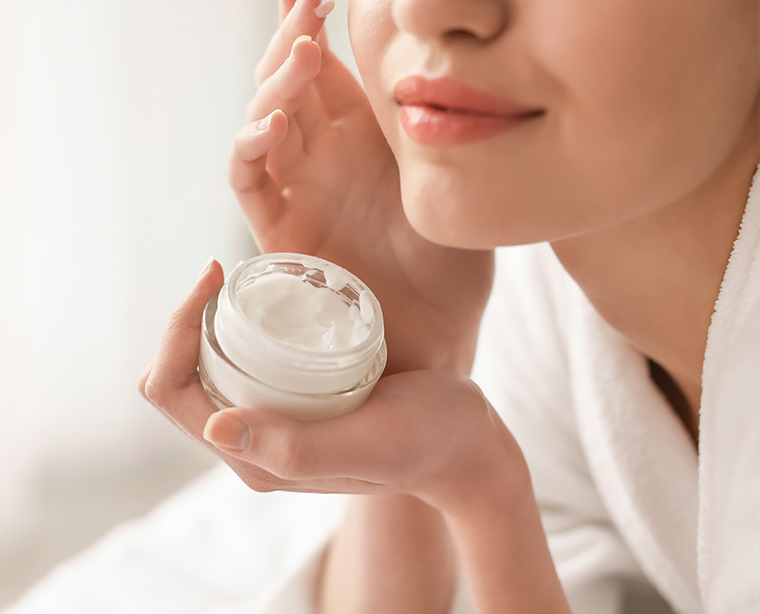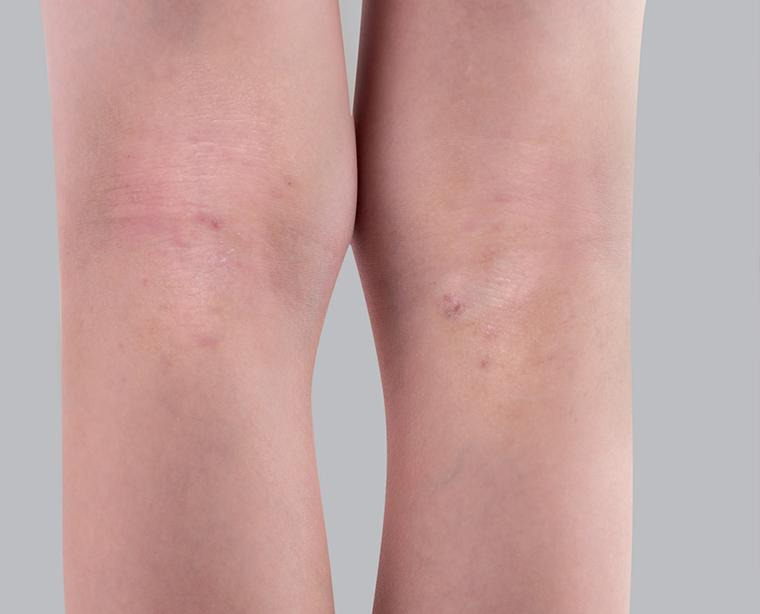

The Role Stress Plays in Eczema

Understanding the Role Stress Plays in Eczema: Causes, Symptoms and Treatments
Heavy workloads, exams, and so on. There can be many sources of stress in a person's daily life. A wave of emotions can have negative consequences for a person's mental and physical well-being. What do we mean by "stress"? Does stress cause eczema? What are the treatment options? The Pierre Fabre Eczema Foundation will tell you everything you need to know.
Understanding Eczema
Are you feeling stressed? Have you noticed red plaques appearing on certain areas of your body? It is important to make an appointment with a qualified expert to check that this is indeed a flare-up of atopic eczema.
What Is Eczema?
Atopic eczema is a type of skin inflammation also known as atopic dermatitis. It is a common form of eczema in both children and adults. It is a chronic condition characterized by the appearance of red, itchy plaques on very dry skin. Eczema is in no way contagious.
Eczema is seen in people with a predisposition to atopy, i.e., a genetic hypersensitivity to the environment. This means there are often other atopic people in the family.
To find out more about eczema, its causes and treatments, visit the dedicated section of our website.
Everything You Need to Know About the Role Stress Plays in Eczema
It is not uncommon to hear people claim that their eczema is caused by stress. Is there any truth to this? What do the experts have to say?
What Is Stress?
Before examining the correlation between a feeling of stress and eczema, it is worth recalling what stress is. It is an emotional and/or physical reaction of the body, resulting from tension felt during a particular situation (exams, trauma, etc.). It is generally triggered by situations that represent a "danger" for the individual and may require adaptation. Everyone is subject to stress to some degree. However, it is advisable to consult a doctor if this feeling persists over time.
Can Stress Cause Eczema?
The answer is no! However, it is certainly true that the more psychological distress a person experiences, the more eczema symptoms intensify. While stress is not the cause of eczema, it can be considered an aggravating factor, or even a trigger for flare-ups. Some people refer to this as "nervous eczema". There are five aggravating or triggering factors for eczema flare-ups:
- Irritants
- Allergies
- Strong emotions
- Microbes
- Eczema itself: The more eczema you have, the more you scratch, the worse the eczema gets (a vicious cycle).
How Does Stress Aggravate Eczema?
Eczema flare-ups have an undeniable psychological impact on an individual. This is how psychodermatology, i.e., the relationship between psychology and dermatological inflammation, came into being. On the one hand, eczema can provoke feelings of embarrassment or shame when coming into contact with other people (loss of self-esteem), putting the sufferer in a state of anxiety and stress. On the other hand, stress encourages scratching (a reflex phenomenon), which aggravates eczema. It is a vicious cycle. Eczema provokes stress, which in turn can accentuate the intensity of itching (pruritus in medical jargon). Stress can also influence the duration of a flare-up, or the extent to which eczema spreads over the body.
The Impact of Managing Emotions on Eczema
How Is Eczema Treated?
To reduce the frequency and strength of flare-ups, two treatments are combined in atopic dermatitis.
- An anti-inflammatory treatment, usually a topical corticosteroid, prescribed by your doctor.
- A hydrating care product (an emollient), to combat dry skin and prevent it from promoting inflammation.
In addition to these treatments, in the case of stress-related eczema aggravation, learning to manage stress and emotions can be helpful.
What Stress Management Techniques Can You Apply?
Today, there are numerous techniques that can be used to reduce stress or learn to manage it better. These include activities such as yoga, meditation and mindfulness. Exercise is also an excellent way of relieving tension. Adopting a healthier lifestyle (eating and sleeping well) can also help reduce stress. Finally, consulting a psychologist can help you manage your emotions more effectively.
What Impact Does the Mind Have on Eczema Management?
It is impossible to suppress your emotions but understanding them enables us to take a step back and "get in the right frame of mind" to take care of ourselves. Sufficient self-esteem makes it easier for patients to take charge of their own health. Placebo / nocebo effects: Numerous studies have demonstrated the impact of patients' beliefs on treatments and their efficacy. This effect is thought to be around 30% and may reach 60%-70% in certain pathologies.
Let's not underestimate our power to heal and improve our condition!
Jean-Marc Chavigny
Professional support helps to restore psychological balance and increases the placebo effect.
How Can You Find the Motivation to Take Care of Yourself?
Taking part in Therapeutic Patient Education (TPE) workshops can help you achieve this goal. There are TPE centers in several French towns and cities.
Several points are essential to (re)discovering the motivation to take care of yourself:
- Be in a position to change: Boost self-esteem, identify concrete life plans, etc.
- Be supported: Identify and enlist the help of a resource person (caregiver or not) who will be able to support you, explore approaches such as psycho-genealogy, psychotherapy, meditation, sylvotherapy, therapeutic make-up.
- Prioritize the changes you need to make in your life, at your own pace: Accept the pitfalls and the fact that you may not succeed on your first try (Kaizen or the Theory of Small Steps).
For example, at the Atopy School in Nantes, various workshops are offered to develop patient motivation:
- Self-esteem workshops
- "Living better with your emotions" workshops
- "Becoming a player in your own health" workshops, combined with practical experience: singing and Sylvotherapy, mindfulness (5 senses, breathing) in the Gâvre forest.
- Collaboration with integrative medicine (energy therapists, acupuncturists, etc.)
In Conclusion
It is important to understand your condition well enough to accept its chronic nature and take action to manage it. The psychological distress associated with eczema is completely normal and legitimate. To say that the disease has no impact on the patient's life is akin to denying reality. Being aware of your emotions brings you back to this reality and enables you to take a big step towards wanting to take care of yourself. Would you like to know more about the relationship between stress and eczema? Would you like personalized advice? Contact a specialist near you!


